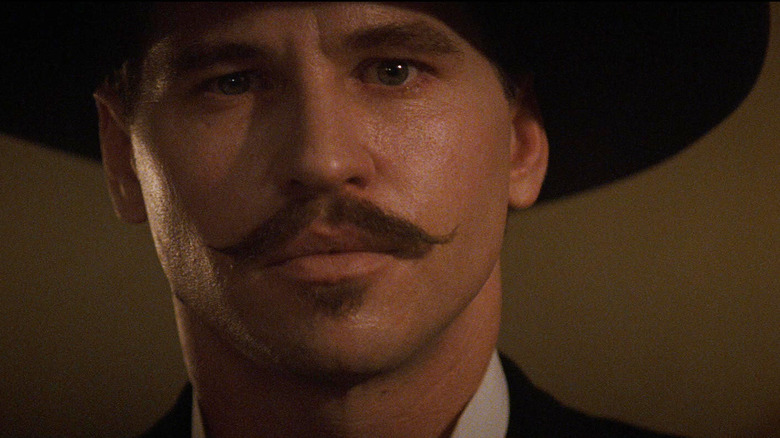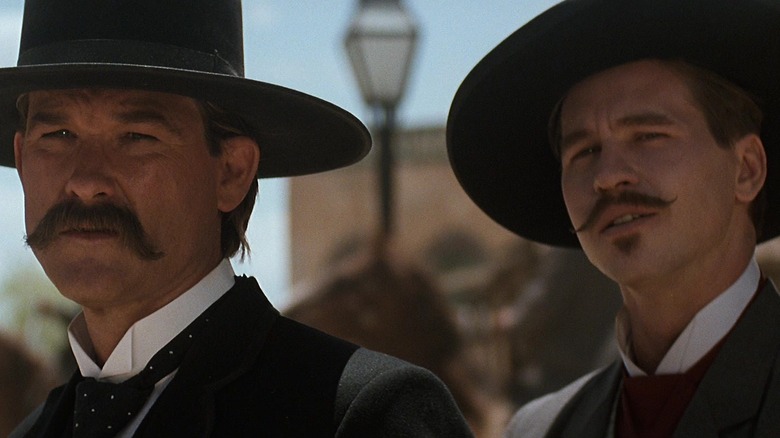I'm Your Huckleberry: Val Kilmer's Tombstone Quote Explained
1993's "Tombstone" is full of memorable lines. "You're a daisy if you do." "I calculate that's the end of this town." "Skin that smoke wagon and see what happens." But no line has stood the test of time or become more closely associated with the film than "I'm your huckleberry," as spoken by the late Val Kilmer in the role of Doc Holliday.
As fans look back on Kilmer's incredible acting career in the wake of his passing on April 1, 2025, movies like "Batman Forever," "Top Gun," and "Heat" naturally rank among the best ones he ever starred in. But Kilmer's turn in "Tombstone" is right there among them, and some would say that his performance as Doc Holliday was the finest of his career — a combination of braggadocious cowboy one-liner-slingin' and tender, heartfelt dramatic moments.
The "huckleberry" line may have been made famous in the modern era in "Tombstone," but the expression is much, much older than that. "I'm your huckleberry" was a common expression back in the 1800s when "Tombstone" takes place, and it simply meant "I'm your guy" or "I'm the one you're looking for" or "I can get that done," and so forth. Doc uses the phrase to accept a challenge from Johnny Ringo (Michael Biehn), promising both that he won't run from the duel and also darkly declaring that he won't be the one to die, as he's more than capable when it comes to gunplay.
Huckleberry symbolism in the legends of King Arthur
Beyond all that, though, some believe that the phrase "I'm your huckleberry" has a much older origin dating back to Arthurian myth. In some versions of old English legends, huckleberry represented allegiance, loyalty, and heroism. These tales would see knights who pledged fealty to a lord sometimes be adorned with a huckleberry garland, signifying their ability. Certain other stories featured a similar ceremony when a Knight completed a protective duty.
While slightly different, this affiliation with huckleberry is largely the same as the one used in old America. It was essentially used to demarcate someone's capability. Indeed, the notion of a knight being a sworn man of a king or lord connects directly to the "I'm your man" meaning of the 19th century phrase.
It speaks to Kilmer's natural charisma onscreen that he could take such an old expression and immediately turn it into a catchphrase for his own character in "Tombstone." The line lives on as an all-timer of the Western genre, as well as one of the most famous quotes from the late actor's many memorable characters.

